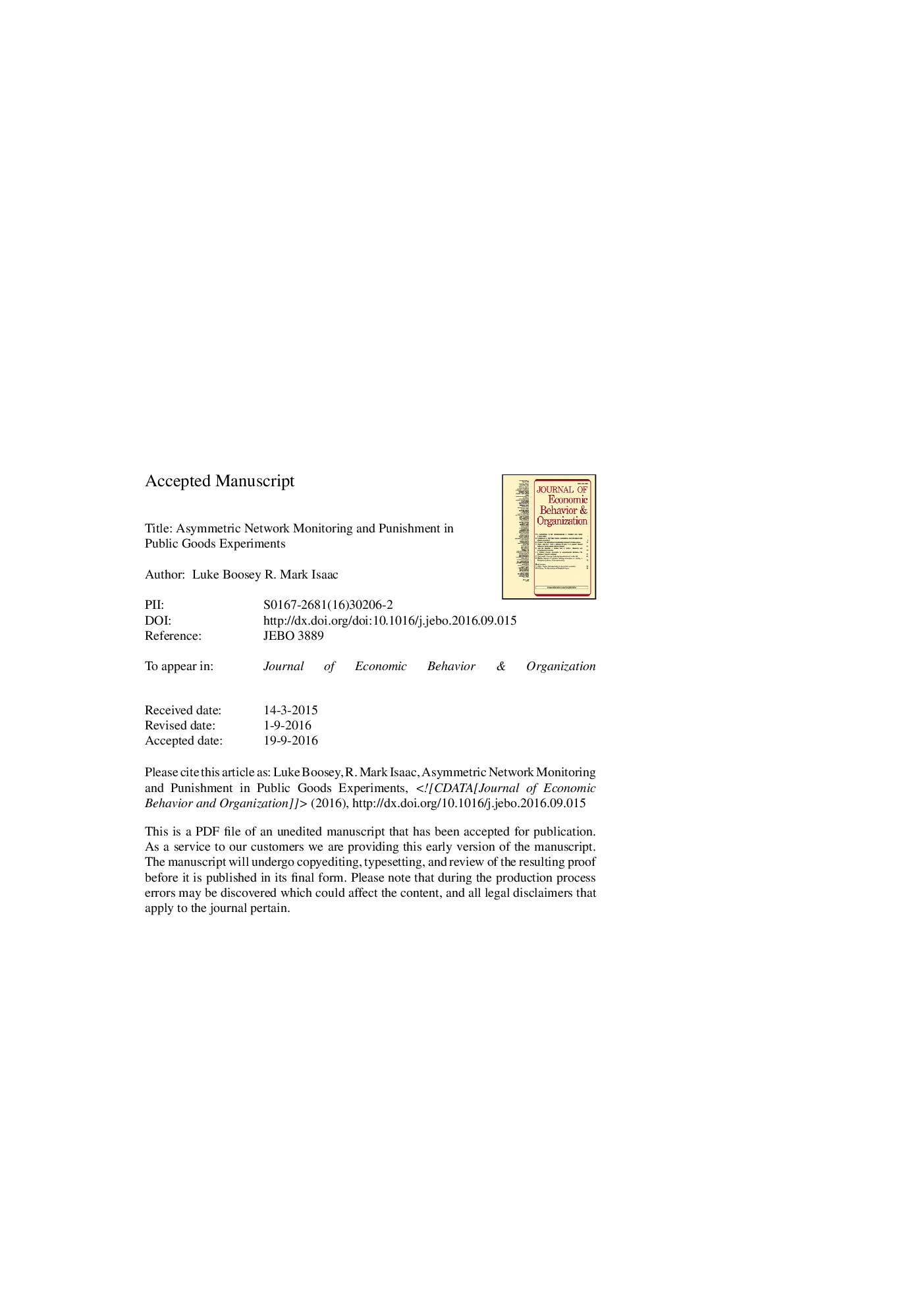| Article ID | Journal | Published Year | Pages | File Type |
|---|---|---|---|---|
| 5034708 | Journal of Economic Behavior & Organization | 2016 | 25 Pages |
Abstract
We extend the recent experimental literature on incomplete punishment networks in linear public goods games. In these games, we use an exogenous network to restrict both monitoring and the set of feasible punishment flows. In addition to two baseline structures (the Complete network and the Circle network), we examine a novel Asymmetric network in which both punishment responsibility and exposure differ across players. Average contributions are significantly lower in the Asymmetric network, driven entirely by the under-monitored player who faces only one potential punisher. We formulate and examine the hypothesis that asymmetry among a player's potential punishment targets may lead to discriminatory patterns of punishment. In particular, players might wish to punish targets for whom they are solely responsible discriminately more than targets for whom they share responsibility. The experimental data do not support this hypothesis, although they do suggest a compelling explanation as to why. Specifically, we find that the under-monitored player in the network retaliates against previous punishment significantly more often than others in the group, which deters their only potential punisher from issuing stronger sanctions. Thus, an additional complication of asymmetry in the network is that it may lead to more instances of anti-social retaliation, inhibiting the effectiveness of the decentralized punishment institution.
Related Topics
Social Sciences and Humanities
Economics, Econometrics and Finance
Economics and Econometrics
Authors
Luke Boosey, R. Mark Isaac,
